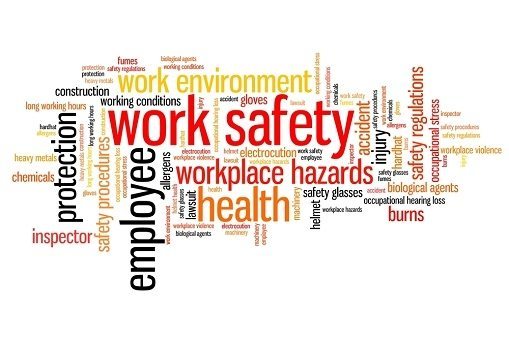

Recently, a 300 level student of European Studies, Faculty of Arts, University of Ibadan, Richard Gbadebo, lost his life to a soap-making machine at a factory in Oluyole Area of Ibadan, the Oyo State capital.
According to reports, Richard was on a holiday job at the factory due to the closure of schools caused by COVID-19.
The deceased, who was an operator, was on a night shift when he unknowingly slipped into the machine that took his life.
The other workers were not aware until they saw blood coming out through the other side of the machine.
In a swift reaction to the incident, the Oyo State government shut down the factory to pave way for a thorough investigation of the circumstances surrounding the sad incident.
In a statement issued by the Chief Press Secretary to the Oyo State Governor, Mr Taiwo Adisa, the government had begun a safety audit of the factory and would ensure that necessary sanctions are meted out on the company upon completion of their investigations.
Richard’s death is one out of many of such incidents that has been happening in the country.
In November last year, an employee of an Ikorodu-based firm, Sunday Usenobong, reportedly fell into a melting pot and died while operating the company’s machine.
Several hapless workers had similarly lost their lives to avoidable factory accidents, while others survived but emerged to be confined to using artificial limbs.
Factory workers have one of the highest rates of workplace injury and death as a result of their exposure to heavy machinery, toxic and flammable chemicals, extreme temperatures, and other potential dangers.
As a result of high unemployment rate in the country, the rules of safety in the workplace have been compromised.
Many of the laws governing workplace safety are often violated by employers of labour.
Sadly, people saddled with the responsibility of ensuring safety at work are lacking in their duty while workers’ unions have failed to treat the issue with the required seriousness it deserves.
There are extant laws governing employer/employee relations and the relationship between employers and the government.
Laws such as the Factory Act, the Labour Act and the Workmen’s Compensation Act call on employers to ensure safety and security for workers, among other safety measures, there must always be protective gear and firefighting equipment.
Unfortunately, these laws are not enforced in many of the country’s factories.
The organised labour movement should always be persistent and genuinely demand efficient and transparent regulations from relevant agencies to rid the country of killer factories.
It will be necessary that the ongoing investigations by the federal and Oyo State government beam its searchlight on the extent of compliance with the extant laws by the employer in question.
Irrespective of the outcome of the investigations, the government must ensure that, all factories are equipped with the necessary gadgets for safety of the employees, and observe all the relevant laws.
Concerned authorities must ensure thorough prosecution of defaulters to serve as deterrent to others.
It is pertinent for the government to make workplaces safe for all workers by enforcing rules and regulations.
Workplaces should not be deathtraps for workers if the regulatory authorities are alive to their responsibility by ensuring strict enforcement of laid down rules and regulation.
Fawzeeyah Kasheem